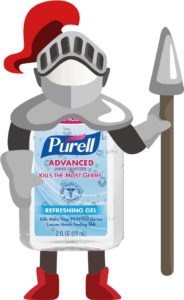 It was one of those awful nights as a coach where you stare blankly out the bus window, wondering what in the world went wrong. As the bus carrying the girls’ basketball team made its way out of town and onto the highway, I sat across the aisle from the head coach. Even though I was the assistant coach, I still felt the weight of the embarrassing loss. However, from the back of the bus came the sound of laughter, joking, and goofiness. The jovial sounds escalated and I could practically feel the coach’s temperature rising from where I sat. Finally, he could take it no more. He got up, walked to the back of the bus and in a firm, yet controlled tone, said something along the lines of, “I don’t know what you girls are used to, but I’m not used to getting my tail handed to me like we just did! You better figure out what its gonna take to be mentally prepared and you better figure out how to take this game seriously! You girls should be embarrassed and instead you are acting like you don’t even care how bad that team made you look!” Needless to say, when he sat down, the rest of the bus ride was quiet. It took time, but throughout the season, the girls learned to think rightly and take the game more seriously. By the end of the season, the team was a play-off contender.
It was one of those awful nights as a coach where you stare blankly out the bus window, wondering what in the world went wrong. As the bus carrying the girls’ basketball team made its way out of town and onto the highway, I sat across the aisle from the head coach. Even though I was the assistant coach, I still felt the weight of the embarrassing loss. However, from the back of the bus came the sound of laughter, joking, and goofiness. The jovial sounds escalated and I could practically feel the coach’s temperature rising from where I sat. Finally, he could take it no more. He got up, walked to the back of the bus and in a firm, yet controlled tone, said something along the lines of, “I don’t know what you girls are used to, but I’m not used to getting my tail handed to me like we just did! You better figure out what its gonna take to be mentally prepared and you better figure out how to take this game seriously! You girls should be embarrassed and instead you are acting like you don’t even care how bad that team made you look!” Needless to say, when he sat down, the rest of the bus ride was quiet. It took time, but throughout the season, the girls learned to think rightly and take the game more seriously. By the end of the season, the team was a play-off contender.
How you think, what you think about, and where your mind dwells makes a huge difference in life. One of the reasons Christians struggle is because they stop thinking biblically about their circumstances and the events that surround them. Instead, they begin thinking about themselves, how things affect them, how they aren’t getting what they want, or things are not the way they want them. In other words, as Christians, we can either think biblically or we can think selfishly. Either way, how we think matters. I was struck by this as I was reading through Psalm 104 this morning.
Psalm 104 begins with these words: “Bless the Lord, O my soul!” Note the Psalmist begins with worship! He is making a choice to worship the Lord from the depths of his heart. As we read on, we see him write, “O Lord my God, You are very great: You are clothed with honor and majesty, who cover Yourself with light as with a garment, who stretch out the heavens like a curtain.” The Psalmist worships God because God is the great God! And, the great God is his God!
The Psalmist then goes on for the rest of the Psalm describing the greatness of God! He reigns from Heaven and is over all Creation. He “Laid the foundations of the earth, so that it should not be moved forever” (5). The Lord God put the sea exactly where He wanted it to be and hedged it in with mountains. He sent springs and creeks into the valleys for water, trees for the birds nest in and sing from, and grass for the animals to eat. He made the moon and the sun to mark the days and seasons. The Psalmist goes on to write, “O Lord, how manifold are Your works! In wisdom You have made them all. The earth is full of your possessions.” (24). The Psalmist continues describing how God provides food and life for all living things, even bringing new life into Creation. Throughout the Psalm, we see a picture of God’s sovereign goodness and wisdom exercised through the order of His Creation.
The Psalmist spends over 30 verses describing the greatness of God as seen in Creation! As the Psalm draws to a close, we read this: “May my meditation be sweet to Him; I will be glad in the Lord.” (34). What is the Psalmist getting at? Our thinking about life and our circumstances must line up with who God is! When we are ruled by anxiety and fear, we not thinking on the greatness of God! When are angry and controlling, we are not thinking on the greatness of God! When we are depressed and joyless, we are not thinking on the greatness of God! When we are complaining and disgruntled, we are not thinking on the greatness of God! In all of these instances, and countless others, our meditation is not sweet to God and we are not glad in Him. You see, our understanding of God and our faith in Him is directly proportional to how we view life.
So, here is the challenge for you and me. Are our thoughts and what we think about sweet to God? Or do our thoughts and what we think about discount the greatness of God? Are we glad in the Lord? Or is our gladness based upon circumstances being the way we want them thus revealing that we find our joy in something other than God? Psalm 104 reminds of the sovereignty, goodness, wisdom, and love of God and challenges us to think about life with those truths as foundational to the way we think. Thus, may our thoughts and what we think about reflect these truths! Oh…and spend some time in Psalm 104! It is wonderful food for the soul!


